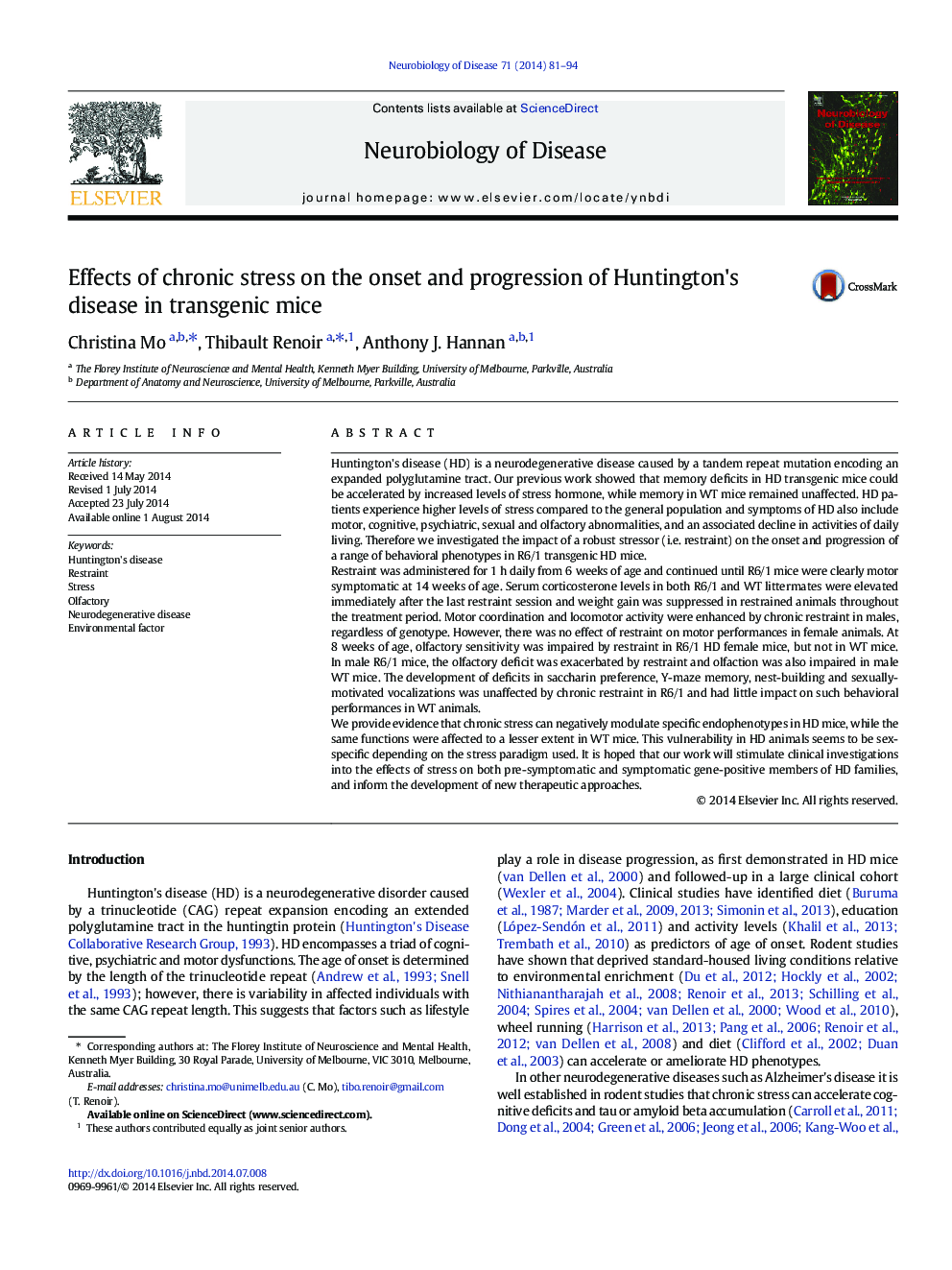| Article ID | Journal | Published Year | Pages | File Type |
|---|---|---|---|---|
| 6021799 | Neurobiology of Disease | 2014 | 14 Pages |
•We tested the impact of a robust stressor on the development of the HD phenotype.•Chronic restraint worsened deficits in olfactory detection in R6/1 HD mice.•Chronic restraint induced hyperlocomotion in males regardless of genotype.•Memory, nest-building and hedonic responses in HD mice were unaffected by restraint.•A salient sensory function is more vulnerable to stress-induced impairments in HD.
Huntington's disease (HD) is a neurodegenerative disease caused by a tandem repeat mutation encoding an expanded polyglutamine tract. Our previous work showed that memory deficits in HD transgenic mice could be accelerated by increased levels of stress hormone, while memory in WT mice remained unaffected. HD patients experience higher levels of stress compared to the general population and symptoms of HD also include motor, cognitive, psychiatric, sexual and olfactory abnormalities, and an associated decline in activities of daily living. Therefore we investigated the impact of a robust stressor (i.e. restraint) on the onset and progression of a range of behavioral phenotypes in R6/1 transgenic HD mice.Restraint was administered for 1 h daily from 6 weeks of age and continued until R6/1 mice were clearly motor symptomatic at 14 weeks of age. Serum corticosterone levels in both R6/1 and WT littermates were elevated immediately after the last restraint session and weight gain was suppressed in restrained animals throughout the treatment period. Motor coordination and locomotor activity were enhanced by chronic restraint in males, regardless of genotype. However, there was no effect of restraint on motor performances in female animals. At 8 weeks of age, olfactory sensitivity was impaired by restraint in R6/1 HD female mice, but not in WT mice. In male R6/1 mice, the olfactory deficit was exacerbated by restraint and olfaction was also impaired in male WT mice. The development of deficits in saccharin preference, Y-maze memory, nest-building and sexually-motivated vocalizations was unaffected by chronic restraint in R6/1 and had little impact on such behavioral performances in WT animals.We provide evidence that chronic stress can negatively modulate specific endophenotypes in HD mice, while the same functions were affected to a lesser extent in WT mice. This vulnerability in HD animals seems to be sex-specific depending on the stress paradigm used. It is hoped that our work will stimulate clinical investigations into the effects of stress on both pre-symptomatic and symptomatic gene-positive members of HD families, and inform the development of new therapeutic approaches.
